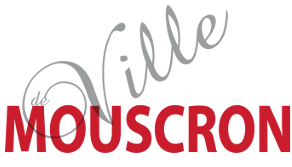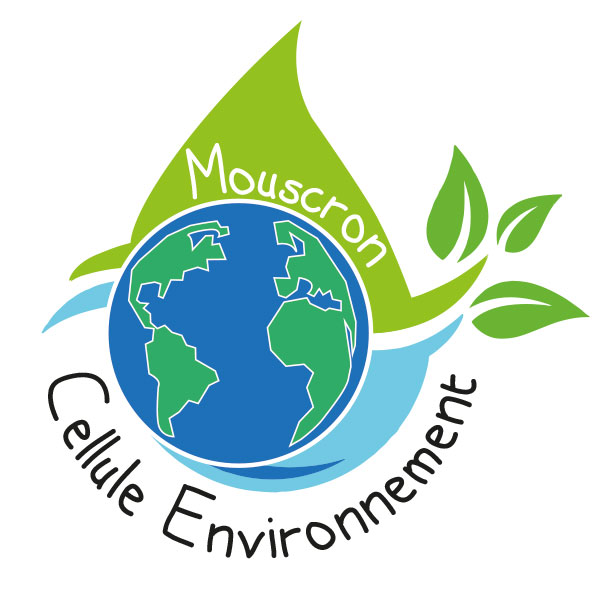Les ODD en Europe - coopération en matière de développement durable - Mouscron participe
Tallinn, en Estonie, est à la tête du nouveau réseau de 19 villes européennes, dont Mouscron, qui vise à mettre en œuvre les objectifs de développement durable des Nations unies au niveau local. (suivez sur internet #oddmouscron)

Selon le maire de Tallinn, Mihhail Kõlvart, les plans à long terme doivent tenir compte des Objectifs de Développement Durable des Nations unies, qui concourent à équilibrer le bien-être des êtres humains et la conservation des ressources naturelles.
Le projet de partenariat stratégique "Mise en œuvre des objectifs de développement durable dans les villes - Objectifs mondiaux pour les villes" permet de contribuer aux objectifs du Green Deal de l'UE en soutenant le développement urbain durable. L'Europe a pour objectif de devenir un continent climatiquement neutre d'ici à 2050, ce qui signifie qu'à cette date, elle n'émettra pas plus de gaz à effet de serre que ce que l'écosystème peut séquestrer.
Le partenariat est financé par le programme de coopération territoriale européenne URBACT III du Fonds européen de développement régional, qui vise à soutenir la coopération et l'échange de savoir-faire entre les villes.
Les représentants des 19 villes participant au réseau pilote se sont rencontrés pour la première fois virtuellement lors de la manifestation d'ouverture organisée par Tallinn en avril.
Le projet, qui se déroule de mars de cette année (2021) jusqu'à la fin de l'année prochaine, créera un groupe de travail local dans chaque ville partenaire, réunissant des experts de l'organisation de la ville et de l'extérieur. Les groupes de travail analyseront et partageront les expériences et les exemples de bonnes pratiques des villes participant au projet dans la planification de la mise en œuvre des Objectifs de Développement Durable. Ils prépareront un plan d'action pour la mise en œuvre des Objectifs de Développement Durable au niveau de la ville, en utilisant des méthodes participatives et co-créatives.
Le projet implique des villes telles que Braga (Portugal), Bratislava (Slovaquie), Dzierżoniów (Pologne), Glasgow (Grande-Bretagne), Gävle (Suède), Heraklion (Grèce), Jihlava (République tchèque), Klaipeda (Lituanie), La Rochelle (France), Manresa (Espagne), Mouscron (Belgique), Ozalj (Croatie), Reggio Emilia (Italie), Schiedam (Pays-Bas), Solingen (Allemagne), Tallinn (Estonie), Veliki Preslav (Bulgarie), Veszprém (Hongrie) et Trim (Irlande).
Dans l'ensemble, l'objectif du développement durable est d'éradiquer la pauvreté dans le monde et de faire en sorte que les gens aient de la dignité et une bonne qualité de vie, tout en respectant l'environnement naturel.
Les Objectifs de Développement Durable 2030 de l'ONU sont subdivisés en trois grands domaines : l'humanité, l'environnement et l'économie. Ils portent notamment sur l'éradication de la pauvreté, l'égalité des sexes, l'eau potable, le changement climatique, les villes durables et la durabilité énergétique, la croissance économique et l'emploi.

Global Goals for Cities - cooperation on the sustainable development of European cities
Tallinn, Estonia, will lead the newly launched network of 19 European cities, which aims to implement the UN Sustainable Development Goals at the local levels.
According to the Mayor of Tallinn, Mihhail Kõlvart, long-term plans should take into account the United Nations Sustainable Development Goals, which aim to balance the well-being of humans and the conservation of natural resources.
"These goals provide a good basis for the balanced development of cities in order to ensure the well-being of inhabitants and the preservation of natural resources. Tallinn is honoured to be elected as the lead partner of this network.”
The Strategic Partnership project "Implementing Sustainable Development Goals in Cities – Global Goals for Cities" helps to contribute to the goals of the EU's Green Deal by supporting sustainable urban development. Europe's goal is to become a climate-neutral continent by 2050, meaning that by then it will not emit more greenhouse gases than the ecosystem can sequester.
The partnership is funded through the European Regional Development Fund's URBACT III European Territorial Cooperation program, which aims to support cooperation and the exchange of know-how between cities.
Representatives of the 19 cities involved in the pilot network met for the first time virtually at the opening event organized by Tallinn in April.
The project, which runs from March this year until the end of next year, will create a local working group in each partner city, bringing together experts from both the city organization and outside. The working groups analyze and share the experiences and examples of good practice of the cities participating in the project in planning the implementation of the sustainable development goals, and prepare an action plan for the implementation of the sustainable development goals at the city level, using participatory and co-creative methods.
Tthe project involves cities such as Braga (Portugal), Bratislava (Slovakia), Dzierżoniów (Poland), Glasgow (Great Britain), Gävle (Sweden), Heraklion (Greece), Jihlava (Czech Republic), Klaipeda (Lithuania), La Rochelle (France), Manresa (Spain), Mouscron (Belgium), Ozalj (Croatia), Reggio Emilia (Italy), Schiedam (Netherlands), Solingen (Germany), Tallinn (Estonia), Veliki Preslav (Bulgaria), Veszprém (Hungary), and Trim (Ireland).
All in all, the goal of sustainable development is to eradicate poverty worldwide and ensure that people have dignity and a good quality of life, while respecting the natural environment.
The UN's 2030 Sustainable Development Goals are divided into three major areas: humanity, environment and economy, focusing among other things on the poverty eradication, gender equality, clean water, climate change, sustainable cities and energy sustainability, economic growth and employment.




